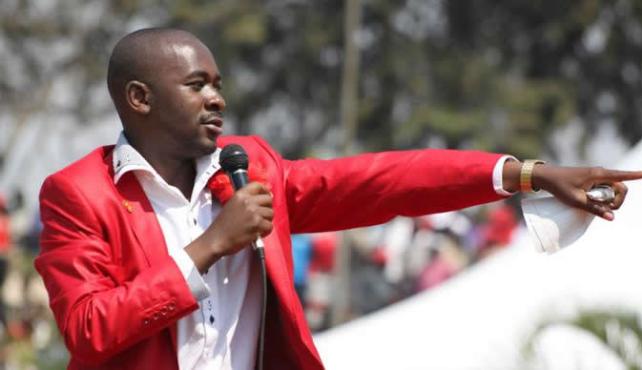Following the death of MDC founder, Mr Morgan Richard Tsvangirai in February 2018, there was confusion in that party as to who would take over from him. Before the unfortunate death of Tsvangirai, it was reported that he appointed Nelson Chamisa, then Kuwadzana East MDC legislator and Engineer Elias Mudzuri as additional deputies to Dr Thokozani Khupe. Had it been that the MDC constitution was to be properly followed, Tsvangirai’s long serving and congress-elected deputy leader, Dr Khupe should have taken over the baton stick from her late predecessor, Tsvangirai.
As the MDC congress drew near, Chamisa’s presidential ambitions continued to hit a brick wall. Recently, the High Court of Zimbabwe nullified his appointment as the MDC Vice president in 2016 as unconstitutional. Consequently, the High Court ruled that Chamisa is not the legitimate leader of the MDC and that their party must hold an extraordinary congress within a month using 2014 structures. The High Court’s verdict comes at a time when Chamisa is boasting of securing 13 out 13 provincial nominations as the presidential candidate ahead of its party congress scheduled for the 24 to 26 May 2019.
However, the word legitimate has been misused by most opposition elements including Chamisa. In trying to discredit President Mnangagwa’s leadership, Chamisa and allies have been maliciously claiming that President Mnangagwa is an illegitimate leader, whilst in actual fact it was him who is an unlawful leader as laid bare by Justice Edith Mushore’s judgement.
It is often argued that the establishment of electoral democracy is key to the creation of political legitimacy. Contrary to that, Chamisa who grabbed MDC leadership through the backdoor, is already proving that the seat is too hot for him. If truth be said, democracy in that opposition outfit has always been on paper and not in practise.
In the 2018 harmonised election, most of the MDC party positions were reserved for Chamisa’s preferred people, and those who were not so close to him were thrown in the political dust bin. For example, Chamisa imposed candidates in constituencies such as Glen-View North and Harare West. In Harare West constituency, Jessie Majome, decided to run as an independent candidate, after Chamisa imposed Joannah Mamombe, a political novice as that party’s candidate.
So, when Chamisa took over from Tsvangirai, democracy was overshadowed by his illegitimate leadership. Chamisa used his dictatorial tendencies to ignore that party’s constitution. For instance, in the former Yugoslavia, political legitimacy broke down not because ethnic groups realized they would become permanent minorities but because the new Croatian state violated citizens' rights in the exercise of power. Just like in MDC, legitimacy turns out to be created, maintained and at some point destroyed at the expense of their party supporters. Many times, Chamisa knowingly violates that party’s constitution to suit his political ambitions.
It’s an open secret that Chamisa created his own legitimacy as the leader of MDC, as this follows an application by Gokwe district organising secretary Elias Mashavire challenging his lawfulness. Illegitimate leadership can impede the functioning of a certain political party and other political parties in the same political field. Chamisa’s MDC has been a nuisance to other political parties. When President Mnangagwa called for a national dialogue of political parties, other political party leaders are attending with the exclusion of Chamisa. That alone depicted that Chamisa never wanted to associate with other political parties in national building programmes. In fact, what Chamisa wants is, to soil all the progress being done by Government and other parties that are promoting national development by pushing his “jecha narrative”.
The true colours of an illegitimate leader can be noticed through lack of merit, ability, fairness, appropriateness and political party instability. Following the death of Tsvangirai, MDC officials have been through a lot of disputes and misunderstandings as a result of poor leadership practices by a self-imposed leader, Chamisa. Apparently, there are wrangles within MDC officials pertaining to the issue of deputy presidents. Reports have it that, Mudzuri is blocking the ascendancy of Tendai Biti and Welshman Ncube to the positions of deputy presidents claiming that their party structures should reject Biti and Ncube as they once left MDC, and formed their own political parties.
It is also imperative to note that illegitimate leadership can affect the feelings and behaviours of leaders and their supporters. Leaders, like Chamisa, who have issues of illegitimacy surrounding them, are often reluctant to act upon their undeserved leadership due to fears that doing so could jeopardize their position of power. However, such acts normally results in failed political activities. Had it been that Chamisa was a legitimate leader; his legislators could have occupied more than half seats in the National Assembly during the 2018 harmonised elections.




